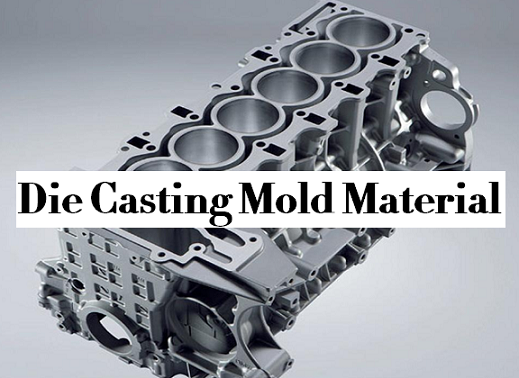Stahl Specialty Company Fundamentals Explained
Stahl Specialty Company Fundamentals Explained
Blog Article
Fascination About Stahl Specialty Company
Table of ContentsStahl Specialty Company Can Be Fun For EveryoneStahl Specialty Company for BeginnersThe Single Strategy To Use For Stahl Specialty CompanyRumored Buzz on Stahl Specialty CompanySome Ideas on Stahl Specialty Company You Should Know
The subtle difference hinges on the chemical content. Chemical Contrast of Cast Light weight aluminum Alloys Silicon advertises castability by reducing the alloy's melting temperature and improving fluidness throughout spreading. It plays a crucial role in allowing elaborate molds to be loaded properly. In addition, silicon adds to the alloy's stamina and use resistance, making it valuable in applications where resilience is essential, such as automobile parts and engine parts.It additionally improves the machinability of the alloy, making it easier to refine into finished products. This way, iron contributes to the total workability of light weight aluminum alloys. Copper increases electric conductivity, making it beneficial in electric applications. It likewise boosts rust resistance and adds to the alloy's total strength.
Manganese adds to the strength of aluminum alloys and enhances workability. It is commonly utilized in functioned aluminum items like sheets, extrusions, and profiles. The presence of manganese aids in the alloy's formability and resistance to fracturing during manufacture processes. Magnesium is a light-weight element that supplies toughness and effect resistance to light weight aluminum alloys.
It enables the manufacturing of light-weight components with exceptional mechanical residential or commercial properties. Zinc boosts the castability of light weight aluminum alloys and helps manage the solidification procedure throughout spreading. It improves the alloy's stamina and firmness. It is commonly located in applications where intricate shapes and fine details are needed, such as attractive castings and certain vehicle components.
The Stahl Specialty Company Statements
Due to the fact that aluminum-silicon alloys have great casting residential properties, high gas buildings, straightforward procedures, and exceptional rust resistance, aluminum-silicon alloys are most typically used in the die-casting industry in the house and abroad. At the exact same time, aluminum-silicon alloys are likewise relatively very early and extensively acknowledged alloys developed and made use of in die-casting. After continual research and improvement, the majority of the existing worldwide mainstream aluminum-silicon alloys have been wrapped up and are nothing greater than A356, A360, A380, ADC12, B390, and A413.
The key thermal conductivity, tensile stamina, return toughness, and elongation differ. Select ideal raw products according to the performance of the target item created. Among the above alloys, A356 has the highest possible thermal conductivity, and A380 and ADC12 have the cheapest. The tensile limitation is the opposite. A360 has the ideal yield toughness and the greatest elongation price.

Stahl Specialty Company - An Overview
In accuracy spreading, 6063 is well-suited for applications where elaborate geometries and top notch surface area coatings are paramount. Examples consist of telecommunication units, where the alloy's premium formability enables streamlined and visually pleasing styles while keeping architectural stability. Similarly, in the Lights Solutions market, precision-cast 6063 components create stylish and reliable lighting components that need detailed shapes and good thermal performance.
(https://yoomark.com/content/httpsstahlspecialtycom-0)
It causes a finer surface coating and far better rust resistance in A360. The A360 exhibits premium elongation, making it ideal for facility and thin-walled elements. In precision casting applications, A360 is fit for markets such as Customer Electronics, Telecommunication, and Power Devices. Foundry near me. Its enhanced fluidity permits intricate, high-precision components like smartphone casings and communication gadget housings.

In accuracy spreading, aluminum 413 shines in the Consumer Electronic Devices and Power Tools sectors. This alloy's premium rust resistance makes it an outstanding selection for exterior applications, making certain resilient, sturdy products in the discussed markets.
Stahl Specialty Company for Dummies
The aluminum alloy you select will significantly affect both the spreading process and the properties of the last item. Because of this, you have to make your choice meticulously and take an informed approach.
Identifying the most ideal aluminum alloy for your application will mean weighing a wide selection of features. These comparative alloy attributes adhere to the North American Die Casting Organization's standards, and we've split them into two categories. aluminum metal casting. The first group addresses alloy characteristics that influence the manufacturing process. The second covers attributes affecting the buildings of the end product.
The alloy you pick for die casting directly affects a number of facets of the spreading process, like exactly how very easy the alloy is to deal with and if it is prone to casting issues. Warm cracking, additionally understood as solidification fracturing, is a typical die casting defect for light weight aluminum alloys that can result in inner or surface-level tears or cracks.
The Definitive Guide to Stahl Specialty Company
Certain light weight aluminum alloys are extra prone to warm cracking than others, and your selection ought to consider this. Another usual flaw discovered in the die spreading of light weight aluminum is pass away soldering, which is when the cast sticks to the die walls and makes ejection difficult. It can harm both the actors and the die, so you should search for alloys with high anti-soldering residential or commercial properties.
Rust resistance, which is currently a notable quality of aluminum, can differ considerably from alloy to alloy and is a necessary particular to consider relying on the ecological problems your product will be subjected to. Use resistance is an additional home frequently looked for in aluminum items and can differentiate some alloys.
Report this page